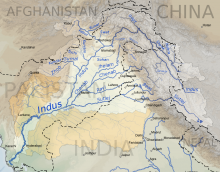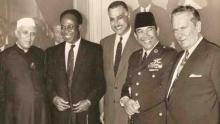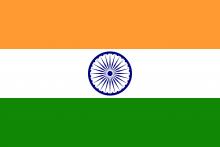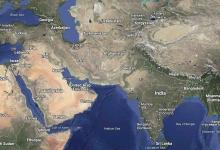-

Thinking about a majestic river like the Indus River in South Asia attracts more perspective and situation room strategies than a possible benefit-sharing solution. From countless war strategies to suing each other in legal battles, from instigating to investigation, from hydro-phobia to hydro-politics, from misinformation to deliberately uninformed, India and Pakistan have been engaged in myriad exchanges and wasting time and opportunity. The exception could have been only during the ancient Indus Civilisation when settlements on both sides of the river respected the Indus as one.
-

On August 30, 2012, the Lower House (Lok Sabha) of the Indian Parliament passed a bill to amend the Chemical Weapons Convention (CWC) Act (2002). The Chemical Weapons Convention (Amendment), 2012 Bill “prohibits the transfer of specified toxic chemicals from and to a country which is not a party to the Chemical Weapons Convention (CWC).” Passing this Bill was part of India's international obligation towards CWC.
-

As leaders from about 50 countries arrive with their caravans in Tehran for what now seems to be settling into a triennial ritual, a question that has intrigued everyone for the past two decades is - what does NAM mean in a post-cold War context? Moreover, somewhat, if not equally, intriguing, a question that historians have struggled to find answers to is the origins of the term itself. Claims about who ‘invented’ the term and where it was first uttered have never had a settled answer.
-

While India has been witnessing terrorism ever since its independence, the vicious influence and reach of contemporary terrorism are unique and cleave out potent problems for India. Many of the terrorist attacks against cities in India, like the German Bakery blast in Pune (Maharashtra) on February 13, 2010, had been conceptualized and planned by Indian Muslims who sought to attack their own country.
-

Non-alignment is backed by a recent report prepared and published by the Centre for Policy Research, New Delhi, in February 2012. Reminiscent of a movie sequel, it is refreshed, repackaged, updated and delivered in a 2.0 form, titled “Non-Alignment 2.0: A Foreign and Strategic Policy for India in the Twenty-First Century”. And like most movie sequels today, it also runs on an altogether new script with only an imaginary connection to the first. Why stick to the name, then?
-

The fortitude of cooperation and practical attitude in the investigation of transnational terrorist crimes is indispensable. Indian investigating agencies have been undergoing many problems in trail of the terrorism-related cases in investigations and checks in other countries. Consequently, cooperation between law enforcing authorities of different countries is a vital tool for fighting threats to security. It requires sustained cross border cooperation, coherent regional cooperation and specific global cooperation.
-

In 1974, India conducted a nuclear test that is termed as a ‘peaceful nuclear explosion’. However, in 1998, India conducted a full-scale nuclear test and consequently claimed to attain nuclear capability. It was soon followed by its neighbour, Pakistan, also opting for the same nuclear route. A year later, the draft on nuclear doctrine was presented in August 1999 to the Indian Prime Minister. Subsequently, the Cabinet released it for public debate by the National Security Advisory Board.
-

The Indian foreign minister SM Krishna’s four-nation visit to Israel, Jordan, Palestine and the UAE from January 8 to 11, 2012, has been seen as the beginning of a “new approach ” in India’s foreign policy towards West Asia in general and the Arab Gulf region in particular. India has unequivocally accepted the paradigm that the relations with both Palestine as well as Israel are equally significant to its core national interests.
-

Indo–China relationship touched a new low when the latter unilaterally cancelled the 15th round of Special Representative-level talks between Indian and Chinese diplomats which was scheduled to be held on 5th December at New Delhi. The reason as cited by China is a scheduled speech in New Delhi by the Dalai Lama. Perhaps gone are the days of Chinese socialism because this is the expression of Bejing’s feudal mindset and its narrow-minded approach to bilateral issues.
-

According to Thomas Homer-Dixon, water will be the major source of conflict in the upcoming time. The contemporary scenario represents somewhat the same picture. The present era is marked by various kinds of conflicts, where resource sharing between nations is a big issue of contemplation, which further leads to disagreement. The conflict often arises due to unequal distribution of resources or from a dependency-led need for more resources, often at the expense of neighbouring states.
Paxton ported to drupal by DropThemes.in